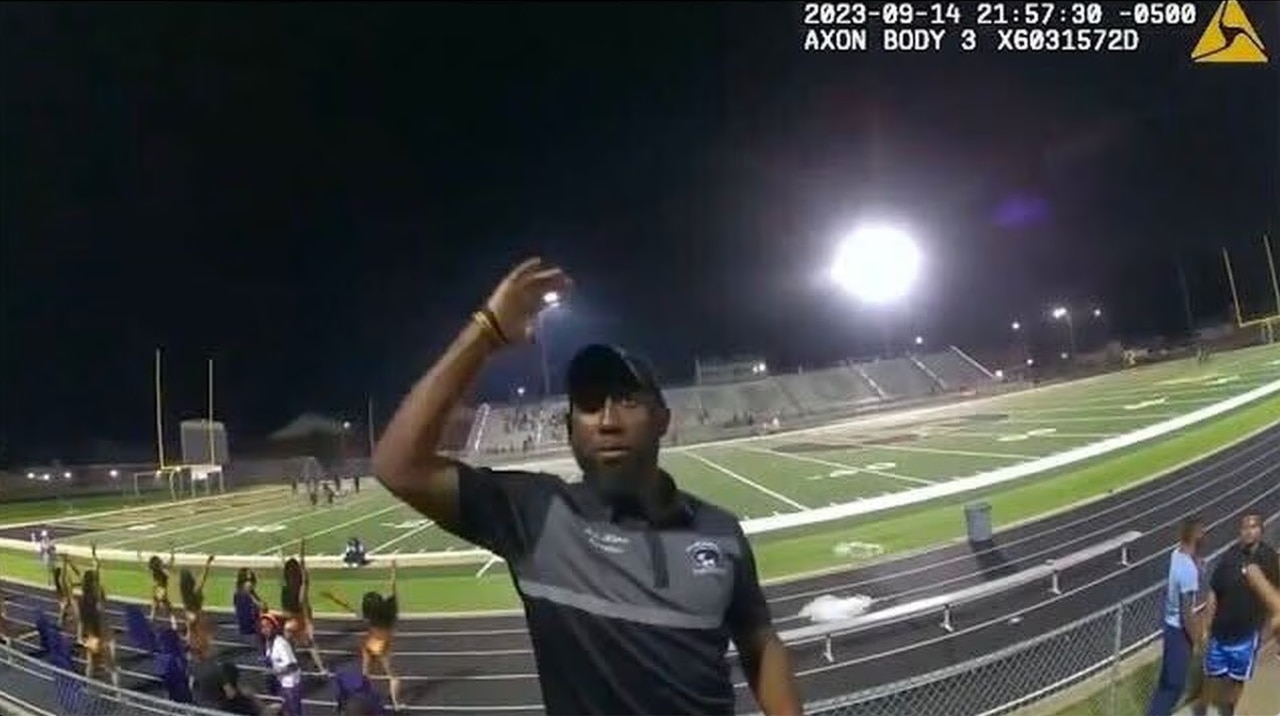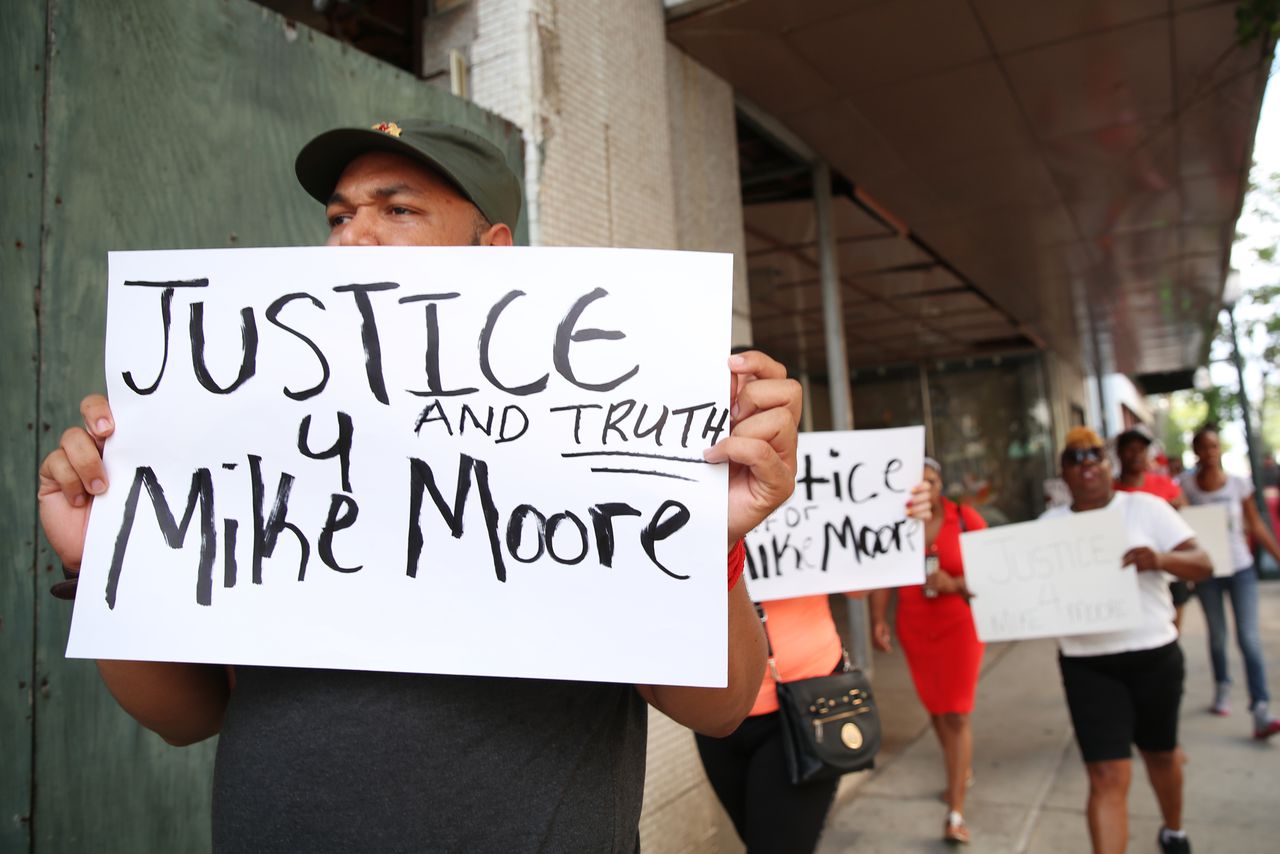Mother continues push for footage of sonâs death following altercation with police
The lack of knowing how her son died continues to haunt Christine Dallas more than two months after Jawan Dallas was killed following an altercation with Mobile police.
She and her family say the answers are within the footage of a police-worn body camera. And for weeks, the family has asked to view it.
Related content:
Authorities have repeatedly said, “No.” They claim the footage is part of an ongoing investigation that will eventually head to a grand jury, and that evidence cannot be released until the probe is finalized. When that happens is anyone’s guess.
“I’m thinking about this when I wake up, and when I lay down,” a tearful Christine Dallas said after she spoke before the Mobile City Council on Tuesday asking for permission to view the body cam footage, only to be told that the council cannot permit it because the case remains under investigation.
“I know he wasn’t the type of person who deserved what happened to him in the last moments of his life,” she said. “They should put an end to this misery. We should be able to know what happened to him.”
Answers coming?
Jawan Dallas (Contributed)
The Dallas family is hopeful to get some sort of update soon. After the council meeting, Chief of Staff James Barber – a former Mobile city police chief, who serves as the lead city administrator underneath Mayor Sandy Stimpson – said he planned to ask Mobile County District Attorney Keith Blackwood about what kind of information can verbally share about the circumstances of Jawan Dallas’s death.
Blackwood’s office is handling the investigation and has denied releasing any of the body cam footage until after a grand jury considers the case. Blackwood, in his denial letter earlier this month, cited Alabama state law that prohibits revealing physical evidence pertinent to a grand jury proceeding.
“I don’t see any harm in answering the questions they have,” Barber said. “What I want is some guidelines from (Blackwood) on what is off limits (related to) grand jury evidence, what’s protected and what is not protected.”
Council topic
For now, the frustration expressed by family and friends over the lack of knowing what happened to Jawan Dallas continues to dominate council meetings.
Remarks from Christine Dallas and supporters also sparked more reaction from council members on Tuesday. Comments included defense of the Mobile Police Department in general, but also acknowledgement that if individual council members could show the family the body cam footage themselves, they would.
“If it was my choice, I’d let you see it,” said Council President C.J. Small, urging family members to reach out to state lawmakers about changing laws to make body cam footage more readily available. “But It’s not C.J.’s choice. If it was my child, I’d want to know.”
The investigation is continuing to unfold in the backdrop of criticism directed at Alabama officials for withholding body cam footage while other nearby states – namely Tennessee – have released them following high-profile incidences.
At least two Alabama cities have released body cam footage, prompting some Mobile council members to inquire as to why the city cannot do the same.

Minor High School band director Johnny Mims in a Birmingham police body cam video.Screengrab
In Florence, police released body cam footage of an arrest outside a gas station even though a criminal investigation is not concluded. And in Birmingham, authorities released the footage of police-worn body cam footage on Monday of an altercation police had on Thursday with the Minor High School band director following a football game.
City Attorney Ricardo Woods said he was unaware of either the Florence or Birmingham cases going before a grant jury. He said because a grand jury is involved, the footage in Mobile cannot be released to anyone. If so, he said, whoever releases it would be subject to a felony.
Woods said that Christine Dallas “will be able to get answers” once the investigation is completed, and Blackwood has said he will allow the family to view the body cam footage once the grand jury process is over.
It’s unclear if the footage will be released publicly.
“It’s a process,” Woods said. “It’s a legal process. I know you want this to be over with, and (for it to) stop being uncomfortable. But this is a process.”
Past cases

Albert Terry of Mobile, Ala., and dozens of others marched from Bienville Square to Government Plaza in Mobile, Ala., on Thursday June 16, 2016 to protest Michael Moore’s death.Sharon Steinmann/AL.com
The lack of body cam footage in the Dallas case follows other cases in Mobile in which the recordings of police-worn cameras were not released, or was not even available.
The most notable case occurred in 2016, when 19-year-old Michael Moore – a Black man – was shot and killed during a traffic stop with a white police officer. The officer did not have the body camera on at the time of the incident. A grand jury declined to press charges, and a Department of Justice investigation claimed it did not obtain evidence to suggested the officer willfully used excessive force that caused Moore’s death.
Mobile police have dismissed calls for releasing the video footage in the March 7 killing of 25-year-old Kordell Jones. He was shot by authorities after he ran out of a house naked and carrying an AR-style gun while police were raiding a home in search of his brother. The District Attorney’s Office is also investigating that case.
Christine Dallas said those other cases, and the handling of body cam video in other cities or states, does not matter much to her. Dallas said while she’s aware of policies elsewhere, she just wants closure with how her son died.
“My mind is so focused on my son where I cannot really think about (other cases),” she said. “I’m trying to make it, day-for-day, to just be able to live with what happened to him because he should be here right now. I had a great son.”
Unanswered questions
Few answers about Jawan Dallas’s death have surfaced since the initial news conference from Mobile Police Chief Paul Prine in July.
Dallas sat inside his vehicle and about a football field’s length away from the trailer where police initially responded to a 911 call about a burglary. The incident occurred in Theodore, an unincorporated community west of the Mobile city limits.
The 911 call prompted a rapid response by Mobile police. The attorneys for the Dallas family have since argued that the caller informed police dispatch that someone was “only in his yard” and that a burglary was not happening.
The 911 caller also claimed the person who trespassed onto the property was homeless. Dallas, who was approached by police, was “sitting in a fully functional vehicle” did not appear to be indigent, according to a claim the family filed with the city.
Mobile police then demanded Dallas produce a state-issued ID, which he did not. Christine Dallas said last month that her son did not have an ID, and that he died because of it.
Mobile police claim that Dallas evaded police commands after they showed up to investigate the burglary call. Prine said that responding officers feared for their own safety because of Dallas’ behavior and “strange movement in the car,” that included movements toward the backseat with his hands.
Dallas was struck with a Taser multiple times. An attorney representing the family said that Dallas fell to the ground after the first tasing, grabbed his chest and complained of pain. The officer tased him again, the attorney says, “until he stopped moving.”
Dallas, a convicted felon, was later found to have drugs on him – crystal methamphetamine and analog marijuana known as spice.
Christine Dallas said that “it doesn’t matter to me” that her son had allegedly been taking drugs before police arrived.
“It doesn’t matter to me if he had anything in his system,” she said. “When the police arrived, my son was alive. When they left, my son was dead. They shouldn’t even have gone to my son, period.”
